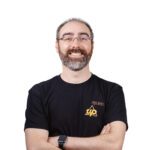Looking at 100 years from now in Solar, EVs and MedTech
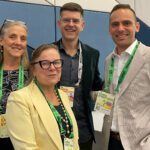
Discover the insights from a panel discussion at SXSW Sydney featuring Slava Kozlovskii (Founder and CEO of evee), Professor Renate Egan (Australian Centre for Advanced Photovoltaics at UNSW), and Professor Fiona Wood (Director, Burns Service of Western Australia), as they discuss the remarkable advancements in solar energy, electric vehicles, and medical technology.
Gain a glimpse into the past and future 100 years from now where innovation transforms our way of life.
Australia, a land known for its stunning landscapes and vibrant culture, is also home to some of the most brilliant minds shaping the future of our world. In a lively panel discussion at SXSW Sydney, we had the privilege of hearing from three exceptional individuals, Pause Awards Alumni, who are at the forefront of innovation in their respective fields.
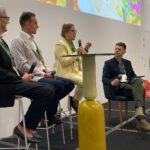
As we delve into their insights, we’ll explore the surprises, challenges, and dreams of these innovators who are shaping the course of history. From solar cells that are changing the energy landscape to electric vehicles paving the way for sustainable transportation and spray-on skin revolutionising medical care, the future is indeed bright down under.
The Solar Revolution Down Under
Australia, with its abundant sunshine, has the potential to lead the world in solar energy. Professor Renate Egan, from the Australian Centre for Advanced Photovoltaics at UNSW, shed light on the remarkable pace of change in the solar industry.
“The amount of solar doubles every two years, so we can confidently say that solar will make up 45% of Australia’s energy contribution by 2030. It’s inspiring!”
“The pace of change is the most surprising to me,” Renate began. “Currently, solar energy contributes to 15% of Australia’s energy production. The amount of solar doubles every two years, so we can confidently say that solar will make up 45% of Australia’s energy contribution by 2030. It’s inspiring!”
While solar panels around the world are often installed in fields, in Australia, they find their home on rooftops. Renate attributed this shift to a game-changing moment. “The tipping point was when the Chinese economy invested in solar,” she explained. “I’m very optimistic. In the ’90s, there were many students from China, and Professor Martin Green, considered the Solar Father, inspired them. Those people went back to China and started manufacturing. This happened in 2000 and was groundbreaking.”
In the early days of solar research in Australia, funding was scarce. Renate humorously dubbed it ‘SolarCoaster.’ “We couldn’t raise funds in Australia, so we had to look offshore to raise capital,” she recalled.
Looking ahead, Professor Egan believes that in 100 years, solar and wind energy will dominate the energy landscape. “If Australia moves fast, it can contribute to the green economy. We should be processing downstream in the future. If we don’t, our GDP will suffer.”
The Miracle of Spray-On Skin
Medicine is another realm where Australian innovation is making waves. Professor Fiona Wood, the Director of the Burns Service of Western Australia, shared her perspective on medical technology and the journey of developing spray-on skin.
“The most surprising thing is the time it takes,” Fiona reflected. “You can’t do it on your own; you have to communicate and collaborate. I don’t know what motivation is, but it’s contagious.”
Professor Wood emphasised the importance of making a difference in the medical field. “In order to make a difference, you have to make money, but unless you make a difference, you don’t make money,” she explained. However, she acknowledged that everything takes time, and the landscape for innovation has evolved since the 1990s.
“I don’t know what motivation is, but it’s contagious.”
From a research perspective, Fiona Wood highlighted the challenges in Australia. “We’re looking at crumbs on the table,” she lamented. “We spend time applying for grants with a 10% success rate. We spend a lot of time getting nowhere. Every step of the way, we’re naive, and investors need to add a zero on every check written in Australia.”
She stressed the need to engage not just with politicians but also with the community. “What’s the point in making more wheels?” Fiona questioned. “We have to have confidence in going international and collaborating. Money gets you a seat at the table. If we don’t aggressively engage in innovation, we’ll be importing it in the future. Because we’re not at the table, it will cost more on every level. We need, as a country, to be at the table on a meaningful level. When we go internationally, we want people to take us seriously.”
Looking into the future, Professor Wood urged a long-term perspective. “It’s significant to look into the future 50 or 100 years from now, not just 2-5 years, because we need to take off our blinders,” she stated. “If we take people to Mars, how will they heal wounds in space with zero gravity? We’ll have robotic surgery. Would we even not need surgeons in the future? Maybe we’ll understand ourselves better, and we’ll develop technology that allows us to regrow or regenerate parts of the body, much like a lizard regrows its tail.”
“It’s significant to look into the future 50 or 100 years from now, not just 2-5 years, because we need to take off our blinders.”
Professor Wood challenged us to consider how we will get there and drive this innovation forward. “It’s about the will and drive,” she emphasised, underlining the importance of determination and persistence in the field of medical research.
In a captivating revelation, Professor Wood recalled, “In England in 1987, there was only one CT scanner, while there were more scanners in Perth than in all of England.”
Driving the Electric Revolution
Electric vehicles (EVs) are no longer a novelty; they are the future of transportation. Slava Kozlovskii, the visionary Founder and CEO of evee, shared his journey in the electric mobility industry, where he’s seen remarkable growth and transformation.
“Electric Cars are more than 100 years old, and they were more popular back in the day,” Slava reminisced. “In 2016 when we started, there were only 500 EVs in the country. We faced so much apathy from people – ‘Is this going to take off?’ – and apathy from insurance companies. I ended up talking to insurance companies for 3 years.”
Funding has always been a challenge for innovators, and Slava’s story is no different. He explained, “Funding is never easy, never-ending, and always hard. We spent 6 months talking to corporates and VC, lots of interest but the conversion rate was low. So we went with equity crowdfunding Birchal, raising $1.6 M, and we got 600 new members and investors.”
“It costs you less over the lifetime.”
One of the most significant hurdles for electric vehicles has been the upfront cost, but as Slava highlighted, “It costs you less over the lifetime.” However, people tend to pay more attention to upfront costs, which is why Slava’s company focuses on letting people experience EVs firsthand.
But what’s holding Australia back from fully embracing electric vehicles? According to Slava, it’s the limited variety of EV models available. He encouraged more diversity in the market. And then there’s the issue of charging infrastructure. “In Australia I have 7 different charging apps on my phone,” he quipped. “I used multiple chargers in Germany, and it works fine with QR code and website login. Australia needs regulation in this regard.”
Interestingly, range anxiety, a common concern for EV users, doesn’t seem to be a major issue in Australia. Slava reassured, “We’re good here, not a major problem, plenty of chargers.”
It’s evident that Australia is on the cusp of revolutionary change in solar energy, electric vehicles, and medical technology. Slava Kozlovskii’s journey with evee showcases the rapid evolution of electric mobility and the potential it holds for a sustainable future. The opportunity is there but the question is how are we going to get there, it’s about the will and our drive. “If we don’t aggressively engage in innovation now we’ll be importing it in the future,” says Professor Fiona Wood.




Related posts

How Entertainment Brands are winning hearts and minds
5 March, 2024

2023 packed a punch
17 January, 2024

The power of relationships with Dom Pym at Pause Awards Night
19 December, 2023
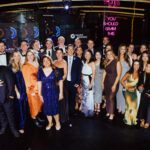
Six years of celebrating the Australian most ambitious innovators
5 December, 2023

M&A green shoots & scandal central
10 November, 2023

Announcing the 63 ambitious finalists, 3 winners and Pause Awards Night
30 October, 2023

Can optimism and curiosity win the battle with Ai
20 October, 2023
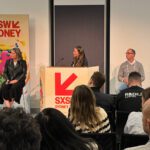
What does the Australia’s VC landscape look like in 2050
19 October, 2023
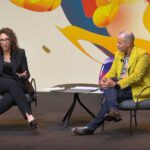
Do we want to live in a Black Mirror world?
17 October, 2023

Four new emerging directors envision sustainable future beyond 2050
6 October, 2023

Visible Founders puts a spotlight on migrant entrepreneurs
28 September, 2023

Always be closing & IPO, no?
24 September, 2023

Strong commitment needed to run tech events in Australia revealed at GEC23
24 September, 2023
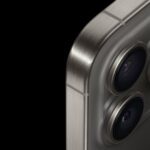
iPhone 15 event: everything about Apple’s new product line
14 September, 2023

Discover the colourful world of oral hygiene with Dsmile’s new range
13 September, 2023

How to build a company culture in dynamic market
8 September, 2023

The valuable startup lessons hidden in the film Oppenheimer
7 September, 2023

Meet the new addition to the Judging Board ‘23
4 September, 2023

Advice on Design Thinking for stellar product development
1 September, 2023

How Pause Awards can put your brand on the map
30 August, 2023

Seize the moment: New Extended Entry Deadline
30 August, 2023

I got 99 problems
26 August, 2023

Is AI the new frontier of creativity and business
25 August, 2023

Tech legends unite to guide growth and foster innovation
22 August, 2023

The new faces of Pause Awards in business and the product officers
21 August, 2023

Don’t miss out on the last chance to join champions
21 August, 2023

Experience is a new frontier for brands
18 August, 2023

How to grow an idea into a great product
11 August, 2023

Good storytelling and trust will fuel startup and brand growth
4 August, 2023

Twitter to X: a rebrand to challenge tech giants and empower users
4 August, 2023

Discover the latest tech predictions of 2023
1 August, 2023
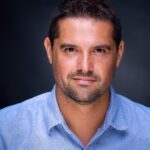
Elevate your business with Stephen Hunt’s success secrets
31 July, 2023

Lean into digital marketing trends now and in 2024
28 July, 2023

The new faces of Pause Awards from agency and media innovation
25 July, 2023

Hit it, DJ! and other local newsings
24 July, 2023

Female-led ethical fintech Verve raises $3M for Verve Money
21 July, 2023

How to better tune into your success journey
21 July, 2023

Pause Fest’s BREAK–THROUGH SESSIONS will keep you scaling
12 July, 2023

How to choose the right awards for your business
5 July, 2023

The new faces of Pause Awards in strategy and leadership
4 July, 2023

We’re building the community for the most ambitious people
27 June, 2023

It was worth waiting for these unique features
26 June, 2023

Mapping the future of fit and function
23 June, 2023
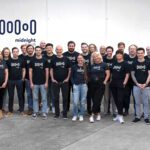
Midnight Health secures $24 million funding boost
21 June, 2023

Championing breakthroughs in today’s business world
21 June, 2023
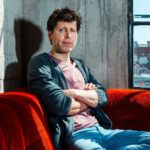
OpenAI’s Sam Altman says hai
19 June, 2023

Top 5 compelling reasons why you should enter
18 June, 2023

Pause Awards vs Webby’s, Cannes Lions and Effies
18 June, 2023

The new faces of Pause Awards in startup, product and experience
15 June, 2023

A tour of 11 new categories
12 June, 2023

Inside out of Pause Awards
5 June, 2023

Aim for the Diamond: Understanding the Different Categories
1 June, 2023

The new faces of Pause Awards in strategy, growth and innovation
30 May, 2023

Where business recognition gets a paradigm shift
24 May, 2023

Industry leaders predict a transformative year ahead
17 May, 2023

Pause Awards grows to $412 Billion ecosystem
17 May, 2023

Shaking it up with new Investable Score™
17 May, 2023

Tap into your inner powerhouse
5 May, 2023

Life in the fast (tech) lane
24 April, 2023
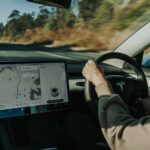
evee rides the electric wave
18 April, 2023

Big win for the female-led business Circle In, lands $2 Million
14 April, 2023

Designing global empires:
How local brands can conquer the world
10 April, 2023

A passionate pursuit for Healthcare reinvention
4 April, 2023

The game-changing sessions at SXSW Sydney
30 March, 2023

Top AI tools you need to try now
29 March, 2023
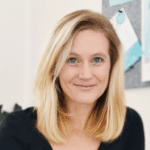
A journey to revolutionising healthy school lunches
28 March, 2023

Panic! at the SVB & metrics that matter
16 March, 2023

Call for Entries
opens on 17 May ‘23
1 March, 2023

Startup funding in decline, but early-stage hits peak in Aus
10 February, 2023

Music for wellbeing:
The healing power of sound
20 January, 2023

Deep dive with ChatGPT about Aussie tech ecosystem
17 January, 2023

How it started; How it’s going 2022
17 December, 2022

Learning from mistakes and how to tackle the upcoming headwind
14 December, 2022

Claiming your PauseNFT trophy
13 December, 2022

Women and purpose led businesses take the most wins at Pause Awards ‘22
6 December, 2022
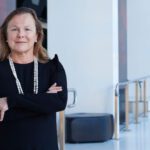
Professor Fiona Wood – The pioneer of ‘Spray-on-Skin’ technique, ReCell.
6 December, 2022
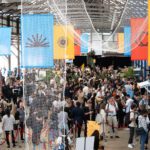
Rise and Demise
28 November, 2022

Let’s have breakfast with champions?
15 November, 2022

82 Bold Finalists Announced for the Pause Awards ‘22
10 November, 2022

Judge Sessions with Lumigo, Tribal DDB and Clipboard Hospitality
24 October, 2022
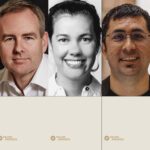
Judge Sessions with LongView, Fullstack and Art Processors
20 October, 2022
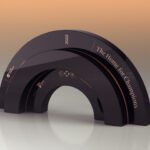
The first look at the new wearable trophy design
13 October, 2022

The Public Voting is open, go get them!
10 October, 2022

Cash to splash & other VC news
2 October, 2022

The Final Deadline Extended to midnight 14 October
30 September, 2022
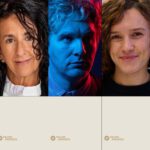
Judge Sessions with Wavia, SEIKK and MedTech Actuator
26 September, 2022

Pause Awards Wins Australia’s International Good Design Awards for Design Excellence
19 September, 2022

Judge Sessions with Synergy Group, AOK Creative and i4 Connect
16 September, 2022

A word with Birchal’s Co-Founder – Matt Vitale
6 September, 2022

What can Pause Awards bring to your company
30 August, 2022

Google, Synergy Group, Spaces Interactive, Safari and By Jacs judges for Culture categories
24 August, 2022

Loyal VC, Media.Monks, AOK Creative, Storyfolk and Irene Lemon judges for Good categories
15 August, 2022

Fullstack, Lumigo, Netambition, MedTech Actuator and Unhedged judges for Operators categories
10 August, 2022

A word with Heaps Normal’s Head of Brand – Peter Brennan
9 August, 2022

Tribal DDB, We Are Unity, Bullfrog, BeautifulAgile and The Audacious Agency judges for your Excellence
2 August, 2022

Simply Wall Street, IBM, Forestlyn, CFOWorx and Accenture Song are this year Growth Judges
1 August, 2022

Venture snapshot: down but not out
26 July, 2022
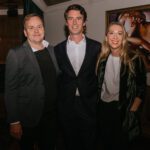
Best equity crowdfunding year in Australia – $86m!
22 July, 2022

How to navigate the awards Entry Portal?
14 July, 2022

Startup Genome ecosystem report 2022 review
10 July, 2022

We’re giving a voice to our community with a stylish newsroom design
10 July, 2022
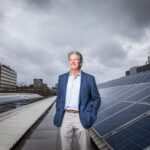
Professor Martin Green
– The father of solar cells
10 July, 2022
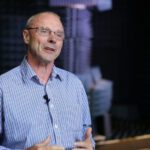
Dr John O’Sullivan
– The inventor of modern WiFi
10 July, 2022

14 New award categories under five tracks to highlight the ecosystem success
5 July, 2022

M&A on the rise & the EV SPAC demise
29 June, 2022
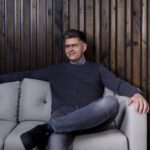
Our new vision:
The home for champions
27 June, 2022

Awards LIVE Briefing and Entry Kit
22 June, 2022

The Porsche of awards programmes with community at its heart
21 June, 2022

The Sheet Society
– Success Stories
17 June, 2022

We’re looking for our final few judges – could you be one?
8 June, 2022

Single Use Ain’t Sexy
– Success Stories
1 June, 2022

Afterpay
– Success Stories
24 May, 2022

This is how we celebrate innovation champions
15 December, 2021

The most ambitious and forward-thinking companies in Australia revealed
24 November, 2021

Pause Awards 2021 Finalists Skyrocket
17 November, 2021

Final Deadline is Looming
1 September, 2021

Get to know:
Carolyn Breeze – Judge
24 August, 2021
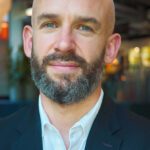
Get to know:
Will Hayward – Judge
17 August, 2021

Get to know:
Shamila Gopalan – Judge
10 August, 2021
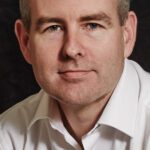
Get to know:
Tom Leyden – Judge
3 August, 2021

Get to know:
Jules Brooke – Judge
26 July, 2021

Get to know:
Jamie Finnegan – Judge
18 July, 2021

Early Entries end This Week
12 July, 2021

Need Help Entering Pause Awards?
6 July, 2021

2021 Award Category Guide
1 July, 2021

How to Enter The Pause Awards in 7 min?
25 June, 2021

Get to know:
Melanie Rayment – Judge
24 June, 2021
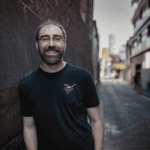
Past winners:
where are they now?
24 June, 2021

Pause Awards 2021 opens for entries
9 June, 2021

New categories revealed for Pause Awards 2021
5 June, 2021

Meet the Judging Board 2021
13 May, 2021

The Reign in the North
1 February, 2021

What went into creating Vincent, a hyper-real digital human
21 January, 2020
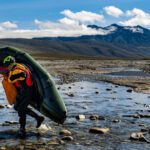
Dane O’Shanassy on Patagonia’s moral compass and commercial success
6 November, 2019
Pause index

Law On Earth
B-Good
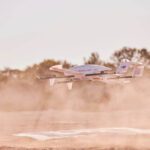
Swoop Aero
B-Good

Michelle Akhidenor
Prodigy

Heaps Normal
I Wish I'd Done That, Hammer

Honeycomb Strategy
Work Sweet Work

Kate Pollard
Women In Business
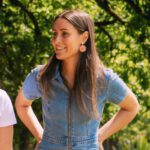
Alicia Holmquest
Inception

Switch4Schools
Defiant Ones
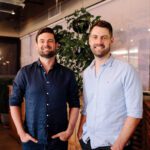
Bare Cremation
Defiant Ones, On The Rise
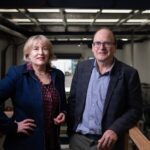
DiaperRecycle
Circular Pioneer
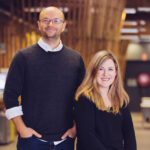
envato
B-Good
